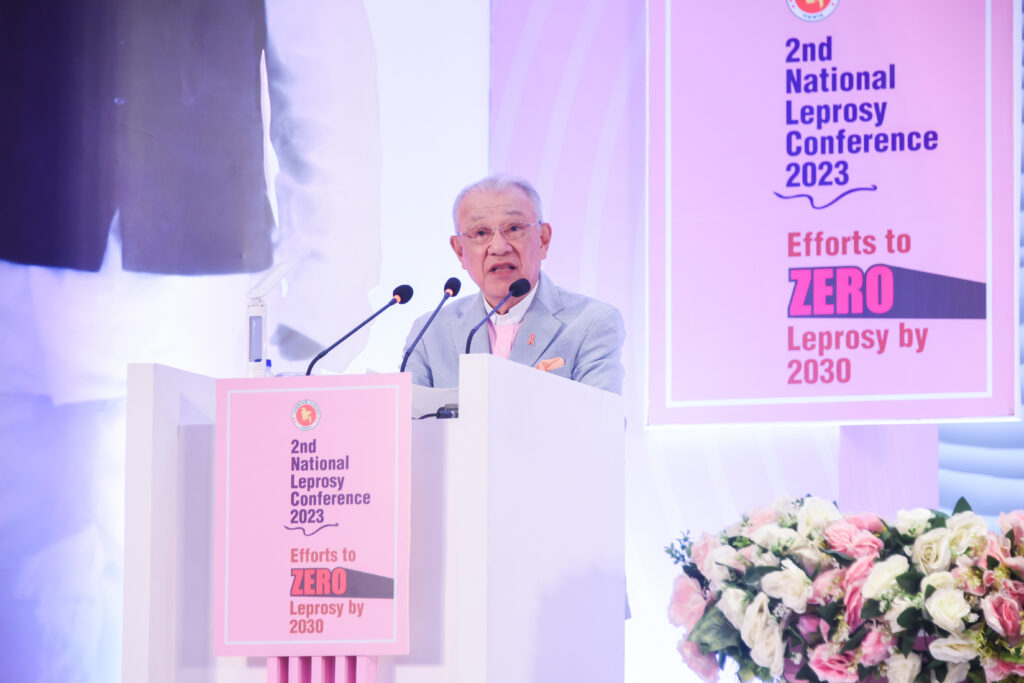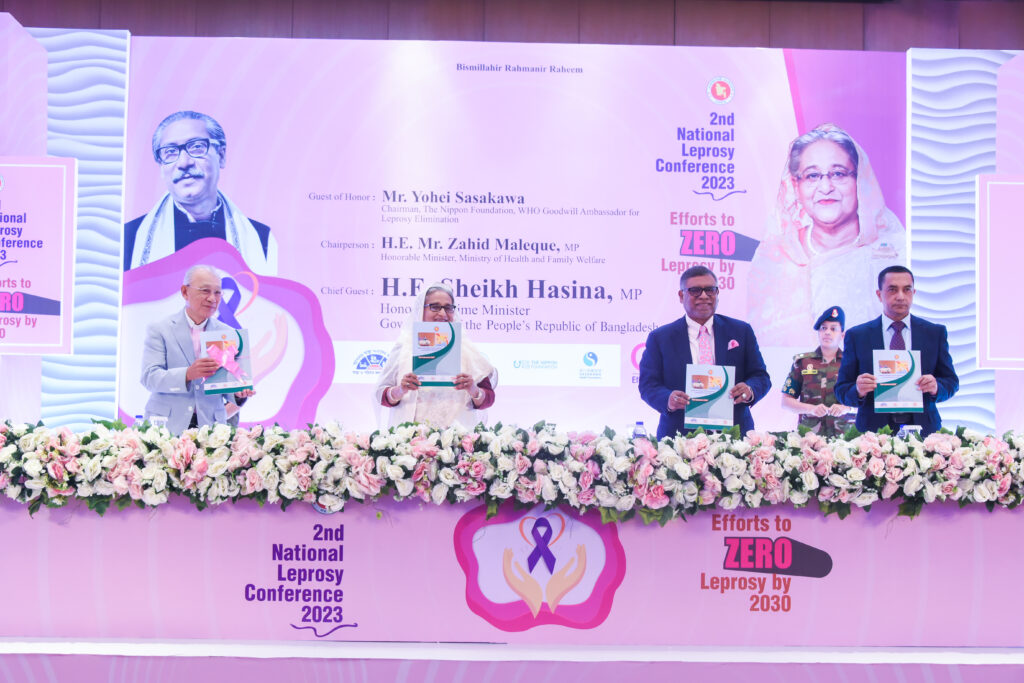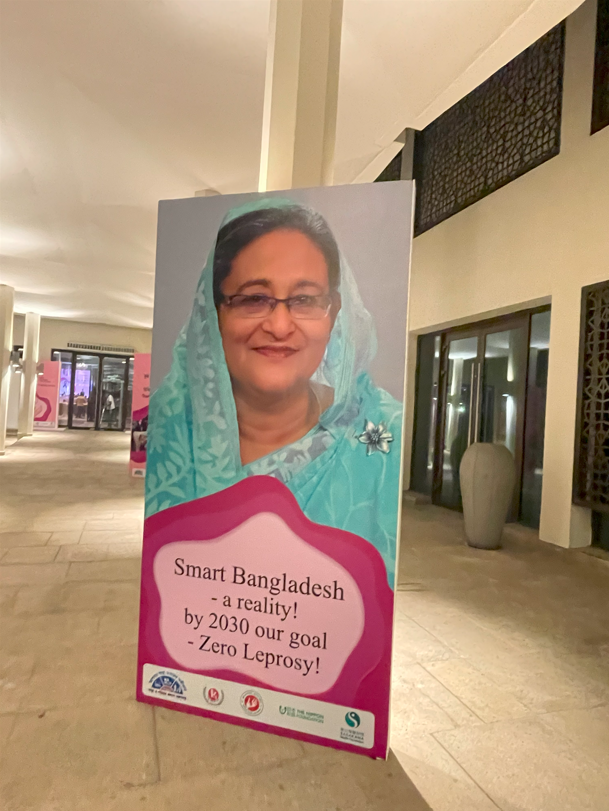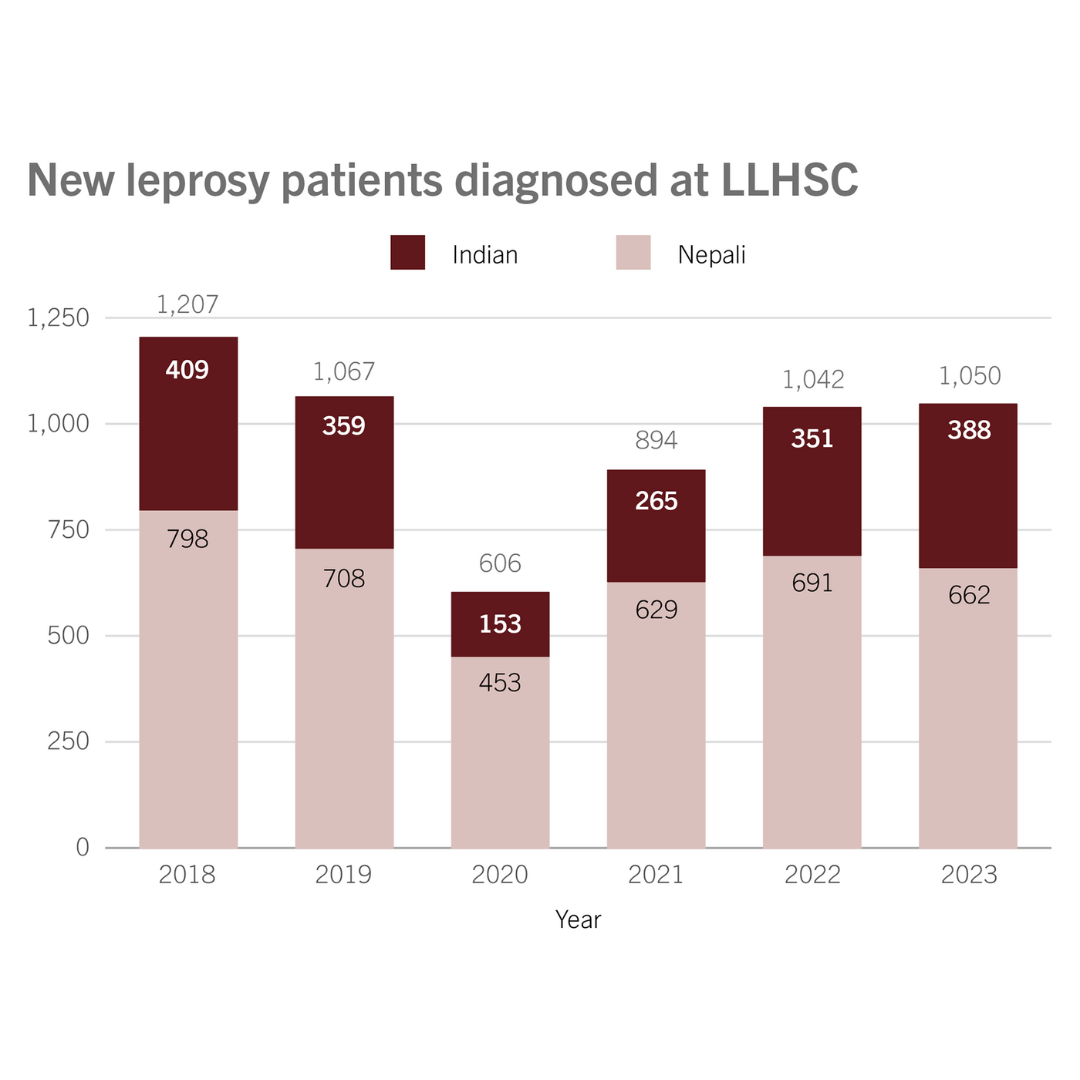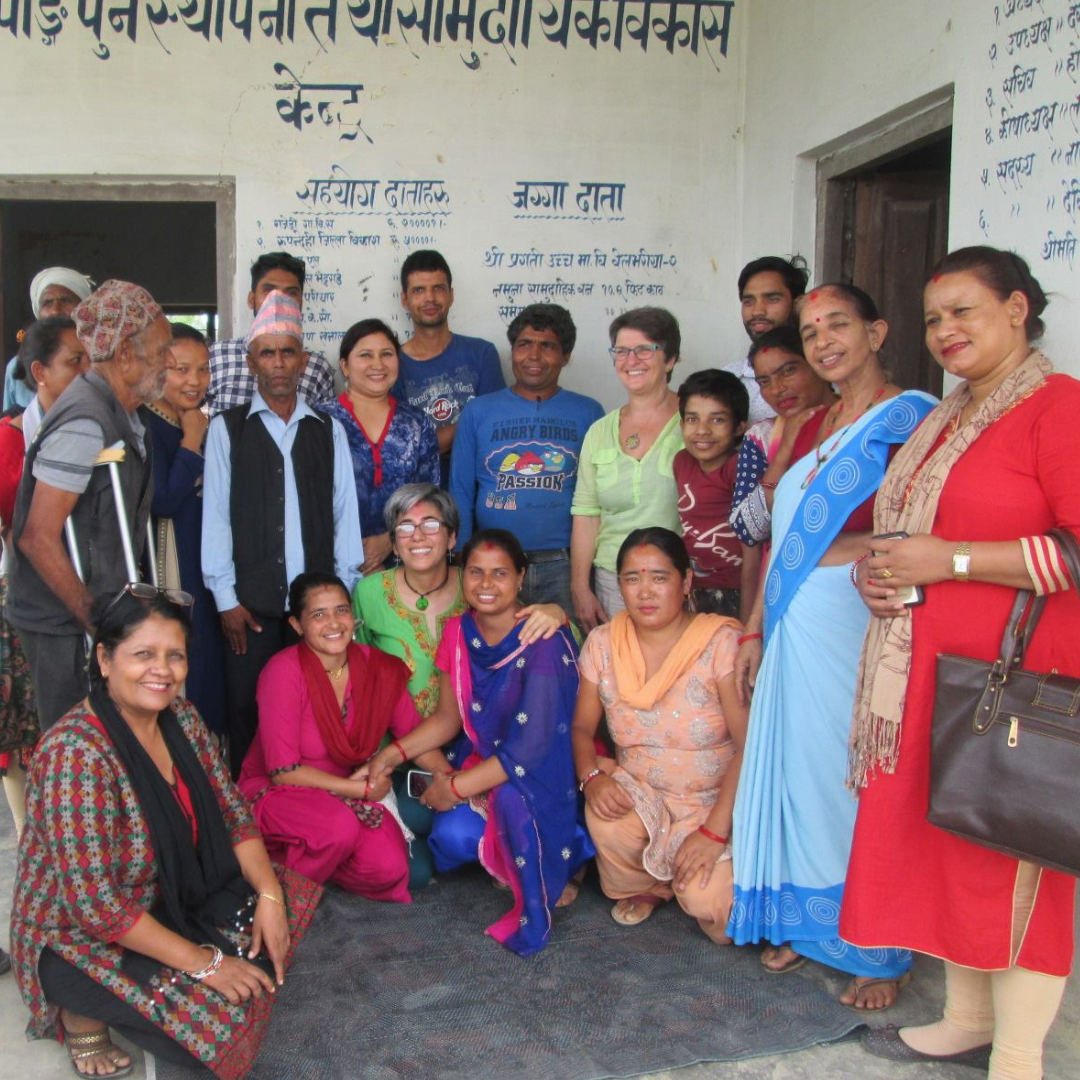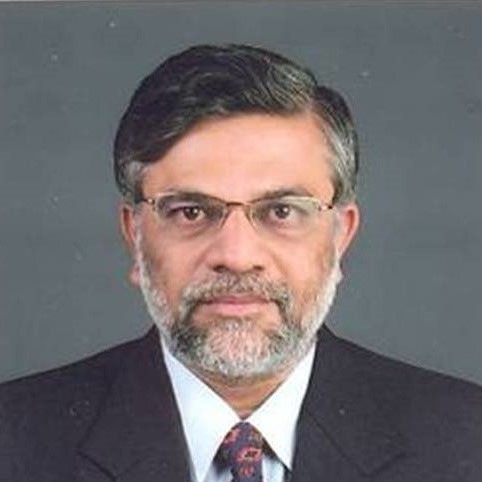Bangladesh’s Ministry of Health and Family Welfare, with support from the Sasakawa Leprosy (Hansen’s Disease) Initiative, held the 2nd National Leprosy Conference in Dhaka on Nov. 12, 2023. The conference brought together medical and public health administration experts, NGO leaders, and representatives of organizations of persons affected by leprosy to reinvigorate efforts toward achieving the goal set by Prime Minister Sheikh Hasina four years ago at the first conference: zero leprosy by 2030.

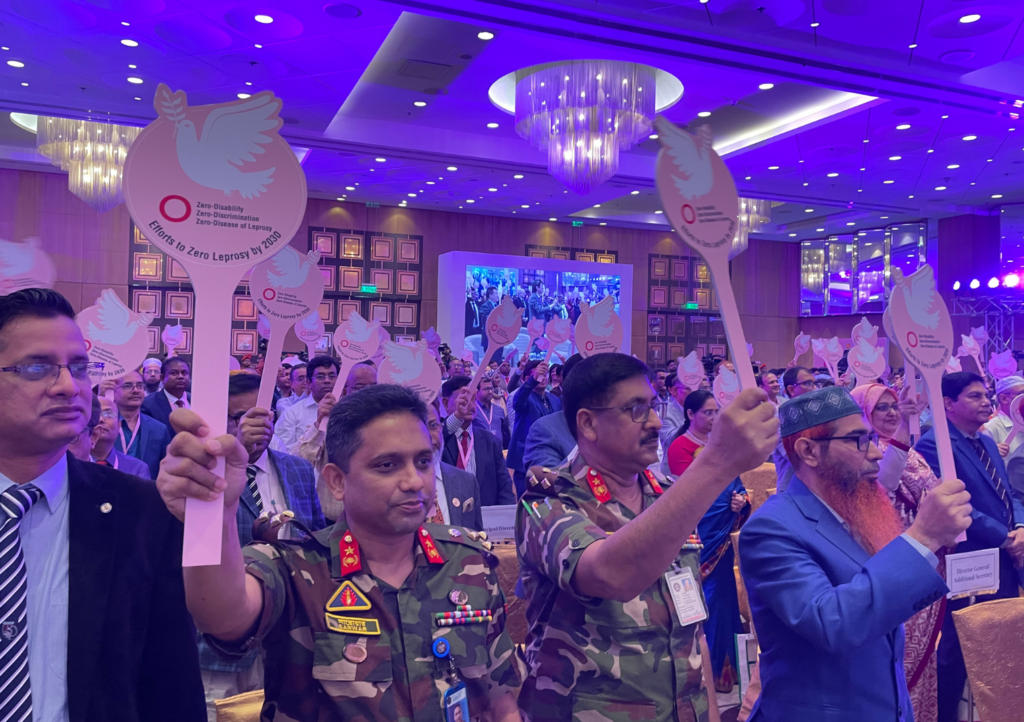
Approximately 500 people attended the morning’s Inaugural Session, where speeches were delivered by Prime Minister Sheikh Hasina; Minister of Health and Family Welfare Zahid Maleque; Secretary of the Ministry of Health and Family Welfare’s Health Services Division Md. Jahangir Alam; and WHO Goodwill Ambassador for Leprosy Elimination Yohei Sasakawa. Technical sessions included contributions from invited panelists Dr. Vivek Lal, Team Leader of WHO’s Global Leprosy Program; Dr. Joydeepa Darlong, Head of Knowledge Management at TLM Trust India; and Dr. Takahiro Nanri, Executive Director of Sasakawa Health Foundation.
Goodwill Ambassador Sasakawa said that Prime Minister Sheikh Hasina’s call for “zero leprosy by 2030” at the first conference in 2019 marked the first time that such a precise goal had been set by a national leader. He thanked the Prime Minister for her bold decision, stating that it has given hope to Bangladesh’s persons affected by leprosy and their family members who still suffer from stigma and discrimination. He pointed out that detection, diagnosis, and treatment efforts stagnated globally during the COVID-19 pandemic, resulting in a misleading statistical decline in the number of new cases. After denouncing the discrimination “rooted so deeply and silently in society,” he asked all participants to work together to realize a world free of leprosy.
Prime Minister Sheikh Hasina reminded participants that discrimination against persons affected by leprosy has no place in the government’s “Smart Bangladesh” vision for a prosperous, equitable, and sustainable future. She declared that persons affected by leprosy must be provided employment opportunities and called on domestic pharmaceutical companies to manufacture leprosy-specific medications. She mentioned increasing funds to accelerate the National Leprosy Program as one of the initiatives necessary for achieving zero leprosy by 2030.
The National Leprosy Strategy for 2023-2030, shared in a presentation and a printed booklet, emphasizes four pillars:
- Strong National Leprosy Program (NLP)
- Integrated active case detection
- Integrated case management
- Community inclusive implementation
The country’s National Leprosy Program is planning to organize workshops with health care providers in 64 districts, to be followed by awareness raising and patient detection activities at the sub-district level. These efforts are part of establishing a system that encourages everyone – not just the central government – to take action toward zero leprosy.

